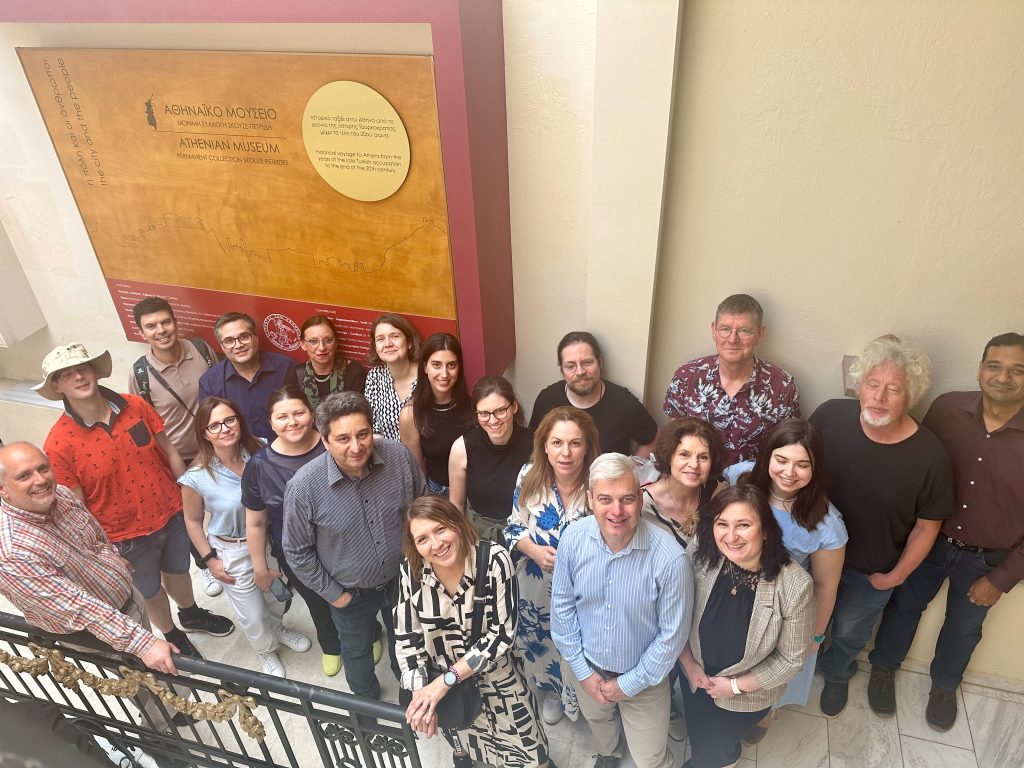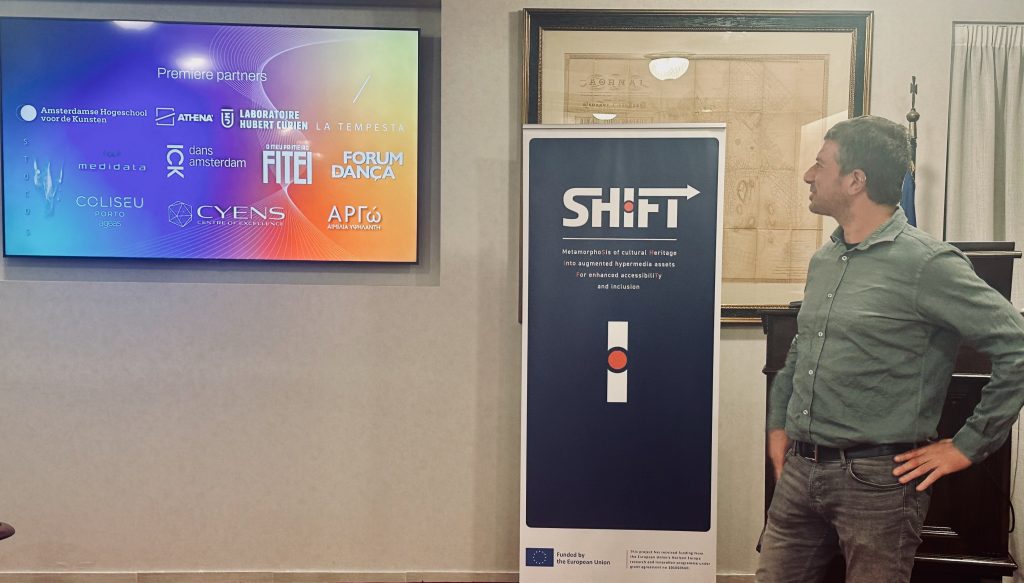The SHIFT project Consortium held its fourth consortium meeting in Athens on May 23rd-24th, to discuss the progress that has been achieved and the next steps the consortium will take in its work to make cultural heritage more accessible, inclusive, and appealing for all.

The SHIFT project Consortium held its fourth consortium meeting in Athens on May 23rd-24th, to discuss the progress that has been achieved and the next steps the consortium will take in its work to make cultural heritage more accessible, inclusive, and appealing for all.
The consortium also presented the project – which is funded by the European Union’s Horizon Europe program- to a select group of heritage professionals, policymakers, and stakeholders and held a small networking session at the Athenian Museum on Friday, May 24th.
Dr. Evangelos Kyriakidis, Director of HERITΛGE, the partner that hosted the meeting, opened the event by underlining the significance of the project: “We are very proud of the Organization’s participation in the SHIFT program and happy to be able to present here in Athens the first samples of the partner’s work with the aim of making cultural heritage more accessible, inclusive and attractive,” Kyriakidis said.
Razvan Purcarea from project coordinator SIMAVI briefly presented the project with help from representatives from Queen Mary University of London, the Technical University of Munich, the Foundation for Research and Technology (FORTH), and the technology company audEERING, all members of the SHIFT consortium.

During the event, Dr. Angelos Giokas from the Athena Research Center gave a brief presentation of PREMIERE, a project for accessibility and inclusion in the performing arts, which is also funded by the European Union’s Horizon Europe program.
